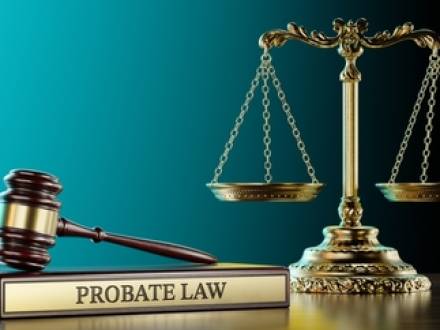Strategies to Avoid the Probate Process for Home Ownership
 Probate can often be time-consuming and expensive, and lead to unwanted family disputes. Because your home may be your most significant asset, you do not want your loved ones to have to go through a complex and stressful process in order for your home to transfer to your heirs. An experienced estates and trusts attorney can advise on how you may set up your estate plan to avoid having your home go into probate upon your passing.
Probate can often be time-consuming and expensive, and lead to unwanted family disputes. Because your home may be your most significant asset, you do not want your loved ones to have to go through a complex and stressful process in order for your home to transfer to your heirs. An experienced estates and trusts attorney can advise on how you may set up your estate plan to avoid having your home go into probate upon your passing.
What Is Probate?
Probate is the legal process whereby your assets are distributed and your debts are settled upon your death. The probate process can vary depending on the assets you owe at the time of your death, whether you have a will in place, and your heirs or family dynamics.
Why Avoid Probate On Your Home?
-
Cost: Probate can be expensive, and the larger the estate, the higher the legal fees may be.
-
Delays: Going through the probate process can take time, as courts do not generally transfer assets until the estate is closed.
-
Privacy: Probate proceedings are public information in Texas, which can open your family up to prying eyes.
-
Hassle: Probate is a complex and involved legal proceeding, which can be very difficult at a time when your family members may be grieving your loss. During stressful times, you will want to avoid putting your family through the additional stress of having to go through probate to receive your home.
How to Avoid Probate of Your Home in Texas?
In order to avoid probate of your home in Texas, you should formulate an estate plan that utilizes one of the following strategies for protecting your home that are specifically designed to avoid probate:
-
Revocable Living Trust: Through a revocable living trust, you can transfer real estate into the trust and designate the beneficiaries who will receive the real estate asset in that trust when you pass away. A trustee will manage that asset according to the terms of the trust.
-
Lady Bird Deed: Texas is one of the few states that recognizes this type of deed, also called an enhanced life estate deed. When you sign this type of deed, it details who inherits the property when you die, while you keep ownership and control of the home during your lifetime. However, it may be difficult to sell the property without the approval of the beneficiary.
-
Life Estate Deed: Like the Lady Bird Deed, this traditional Life Estate Deed means you can live in the property while you are alive, and the property is then transferred to another upon your death. However, after executing this deed you cannot sell or mortgage the property without the consent of the beneficiaries.
-
Transfer-on-Death Deed (TOD): Similar to the Lady Bird Deed, the TOD allows you to designate a beneficiary who will inherit your home when you die, while you control the home while you are alive. Unlike a Lady Bird Deed, it can include alternate beneficiaries.
-
Joint Ownership with Survivorship Rights: In this joint tenancy, when one of the owners dies, the property is automatically transferred to the other owner. However, in this case, you can only leave your home to the other owner and not to other beneficiaries.
-
Gift Assets Before Death: You can gift your home prior to your death to avoid probate, although there are important tax implications.
Contact a Fort Worth, TX Probate Attorney
When making your estate plan, an experienced Fort Worth, TX probate lawyer can help you stay ahead of the decisions associated with planning for your family’s future after your passing. At Gonzalez Law, PLLC, our experienced estate planning attorney understands that every family’s situation is unique. If you are wondering how you can set up your estate plan to avoid probate of your home, call 817-349-7330 for a free consultation.






